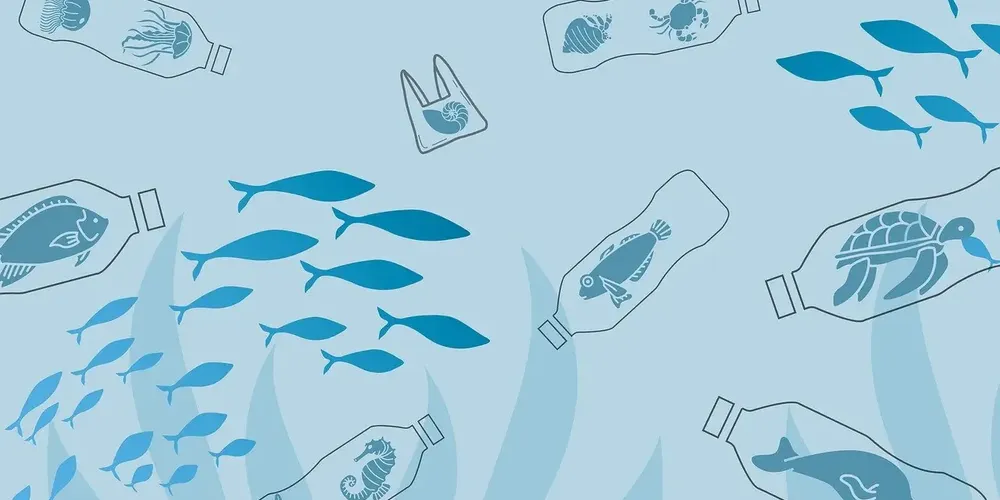
Surprising Twist in Ocean Plastic Saga: Antarctic Microbes Hold Unexpected Promise
A groundbreaking study has revealed surprising insights into the relationship between plastic pollution and microbial plastic degradation in the world's oceans. Researchers analyzed metatranscriptomic data from the Tara Oceans expedition, covering nine oceanic regions and five depth layers, to investigate correlations between plastic pollution levels and the expression of genes linked to plastic biodegradation.
Contrary to expectations, the study found no significant global correlation between plastic pollution and the expression of genes encoding plastic-degrading enzymes. This suggests that ocean microbes have not yet developed widespread abilities to break down synthetic polymers on a global scale.
However, the research uncovered intriguing regional variations. The Southern Ocean, despite having the lowest levels of plastic pollution, showed the third-highest number of hits for potential plastic-degrading enzymes. This makes Antarctic waters a promising location for discovering novel plastic-degrading enzymes, challenging the conventional focus on heavily polluted areas for such research.
Depth-specific analysis revealed that the mesopelagic zone, known to contain high amounts of microplastics, showed a moderate positive correlation between plastic pollution and enzyme hits. This implies that microbial communities at this depth may play a more active role in plastic degradation.
Environmental factors were also found to influence plastic pollution and microbial responses. Iron concentrations and latitude positively correlated with plastic pollution, while photosynthetically active radiation and nitrate showed weak negative correlations.
The study highlights the complex nature of microbial adaptation to plastic pollution, suggesting it may be a localized phenomenon influenced by various factors including polymer type, environmental conditions, and microbial community diversity.
These findings contribute significantly to our understanding of the intricate relationship between plastic pollution and microbial plastic degradation in marine environments. They underscore the need for increased sampling and research efforts in understudied oceanic regions and provide a foundation for developing targeted strategies to address plastic pollution in our oceans.
As we continue to grapple with the global issue of plastic pollution, this research opens new avenues for exploration and potential solutions, emphasizing the importance of a nuanced, region-specific approach to understanding and combating plastic waste in our marine ecosystems.
This work was published on the journal Environmental microbiome on 2024-05-15 with the title "Uncoupled: investigating the lack of correlation between the transcription of putative plastic-degrading genes in the global ocean microbiome and marine plastic pollution." It is available at: 10.1186/s40793-024-00575-4.